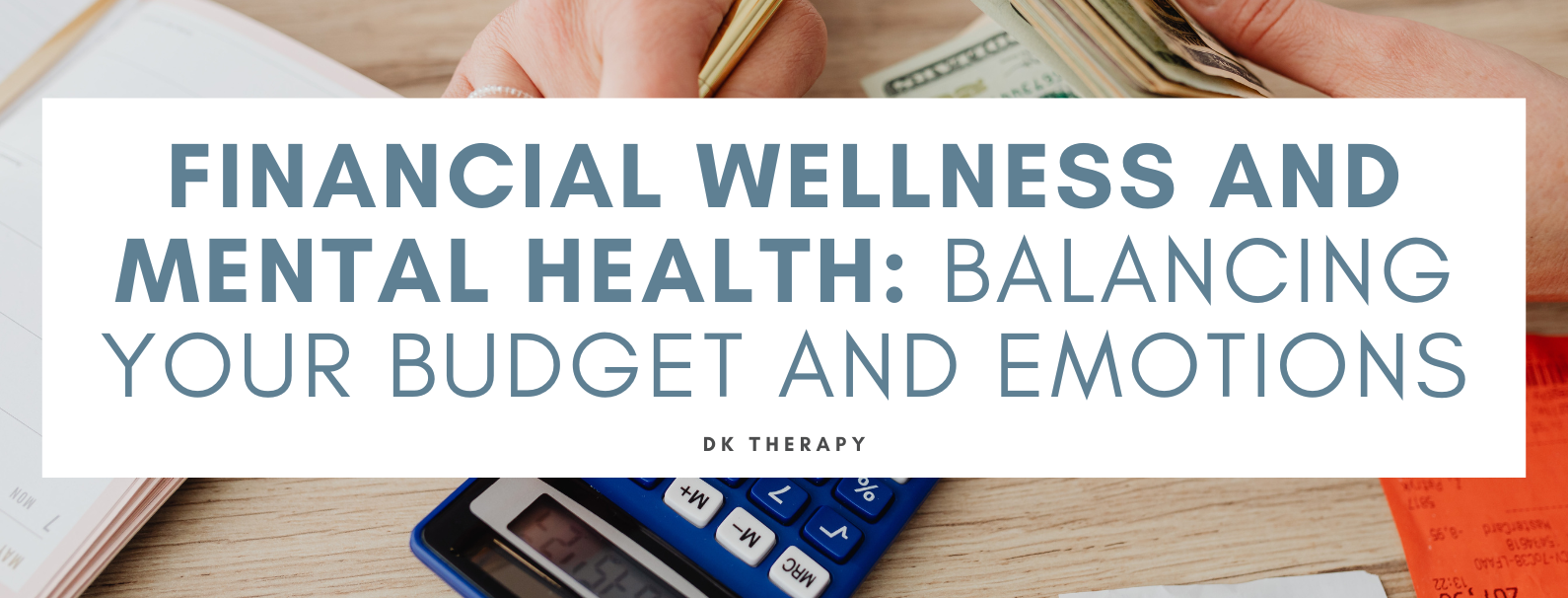
Scores of people deal with stress when it comes to money, and that money stress can lead to an overall detriment to one’s sense of well-being. But why? What is the relationship between an individual’s financial wellness and their mental health? Let’s take a look and explore several strategies individuals can take to balance both their budgets and their emotions.
Mental Health and Money
 Financial wellness and mental health are closely connected with one another, and at times, the relationship between the two can be reciprocal. Financial wellness can have a significant influence on mental health and mental health can greatly impact financial wellness. For example, if an individual struggles with his or her mental health, it may become difficult to adequately manage financial responsibilities. Depression or anxiety can lead to an individual spending too much, avoiding paying bills, or losing income due to struggles at work.
Financial wellness and mental health are closely connected with one another, and at times, the relationship between the two can be reciprocal. Financial wellness can have a significant influence on mental health and mental health can greatly impact financial wellness. For example, if an individual struggles with his or her mental health, it may become difficult to adequately manage financial responsibilities. Depression or anxiety can lead to an individual spending too much, avoiding paying bills, or losing income due to struggles at work.
On the other hand, financial problems can weigh heavily on a person’s ability to live a mentally healthy life. Constantly worrying about finances and struggling to make ends meet can lead to heightened feelings of anxiety and depression.
Strategies for Managing Financial Stress
Overcoming financial stress can be a challenging goal to achieve, but there are several strategies you can follow in order to help you manage and alleviate the pressure you’re experiencing. Here are a few practical suggestions.
Create a Realistic Financial Snapshot
Start your journey by developing a realistic budget that outlines your household income, expenses, and savings goals. When you know where you stand financially, you can gain a clearer understanding of your financial situation. By establishing a well-rounded budget, you can also pinpoint areas where you can cut back on expenses and save some money.
Talk About Money
If you live with a partner, it’s a good idea to have open and honest discussions about your household finances. That way, you’re better able to create a plan that involves everyone in your home.
Additionally, if you can, you may want to speak with a financial advisor or counselor to get personalized advice when it comes to managing your finances. These individuals can help you create a plan, set reasonable financial goals, and provide you with accurate advice regarding your debt management.
Work Toward Paying Down Debt
Depending on your unique circumstances, paying down your debt may require different steps. For example, you could either work on paying down your smallest debts first or you might want to prioritize your highest-interest debts. Either way, develop a plan and work toward stabilizing your financial circumstances to the best of your ability.
Practice General Relaxation Techniques
Finally, focus on the things you can control and be sure that you take time to care for yourself. Try not to dwell on the stress you’re dealing with and distract yourself by practicing effective self-care and relaxation techniques. Try deep breathing exercises, take a hot bath, take up journaling, or try involving yourself with a hobby that’ll help take your mind off your finances.
Money and mental well-being can greatly influence one another. Whether money troubles are stressing you out or mental health issues are making money matters difficult to handle, the connection between the two is very real. By taking careful steps to manage one’s financial health and minimize financial stresses, it’s possible to get your head above water again.
If you’re struggling with your financial well-being and you feel that therapy would be a benefit to you, feel free to reach out to us at DK Therapy.




